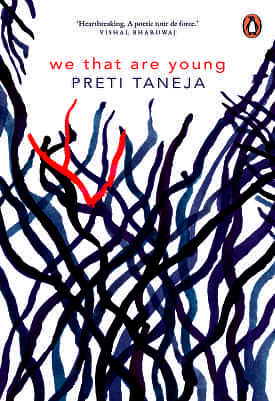We That Are Young by Preti Taneja: a modern perspective of King Lear
24th January 2019By Anna Pavlova
Everyone probably knows something of the Shakespeare play King Lear, whether you’ve studied it in school, watched a performance, read it for fun or just picked up on references to it in popular culture.
To give a brief summary, it’s about a king who is dividing his kingdom into three different parts to give to his three daughters. What he doesn’t know is two of the daughters have other intentions and end up abusing the power given to them, leading to tragic consequences. Throughout are themes of frustration, deception and and betrayal as an older generation tries to make way for the younger one.
Preti Taneja’s first book, We That Are Young, is a modern perspective of King Lear, based in India. It contains all of the same characters but with different names and with different personalities, adapting real life situations and locations into the play and making it into a story with the same narrative. Now you may be asking, why King Lear?
I recently went to a Q&A event with the author and she answered this question: quite simply, she said that is it the best- known play and that she loved it herself.
Preti was born in England with Indian parents but spent most of her time in New Delhi, hence the Indian culture detailed in the book. Preti also works with different charities and teaches writing in prisons and universities, sharing her passion with other people.
At the beginning of the evening, she read from the book and gave us some little snippets of what is to come and when she came to Cordelia’s character, she left us on the edge of our seats: she wasn’t giving away anything. The book itself is well worth the read; it’s something fresh for the audience and gives them a chance to see things from a different perspective.
The book has gained acclaim. Publishers Weekly said: “This is work of epic scope and depth that’s bracingly of the current moment. While remaining close to Shakespeare’s plot points, she offers a portrait of modern India both panoramic and complex.”
Now the question is, will she do another modern perspective of another Shakespeare play? Well, I guess we will have to wait and see.


